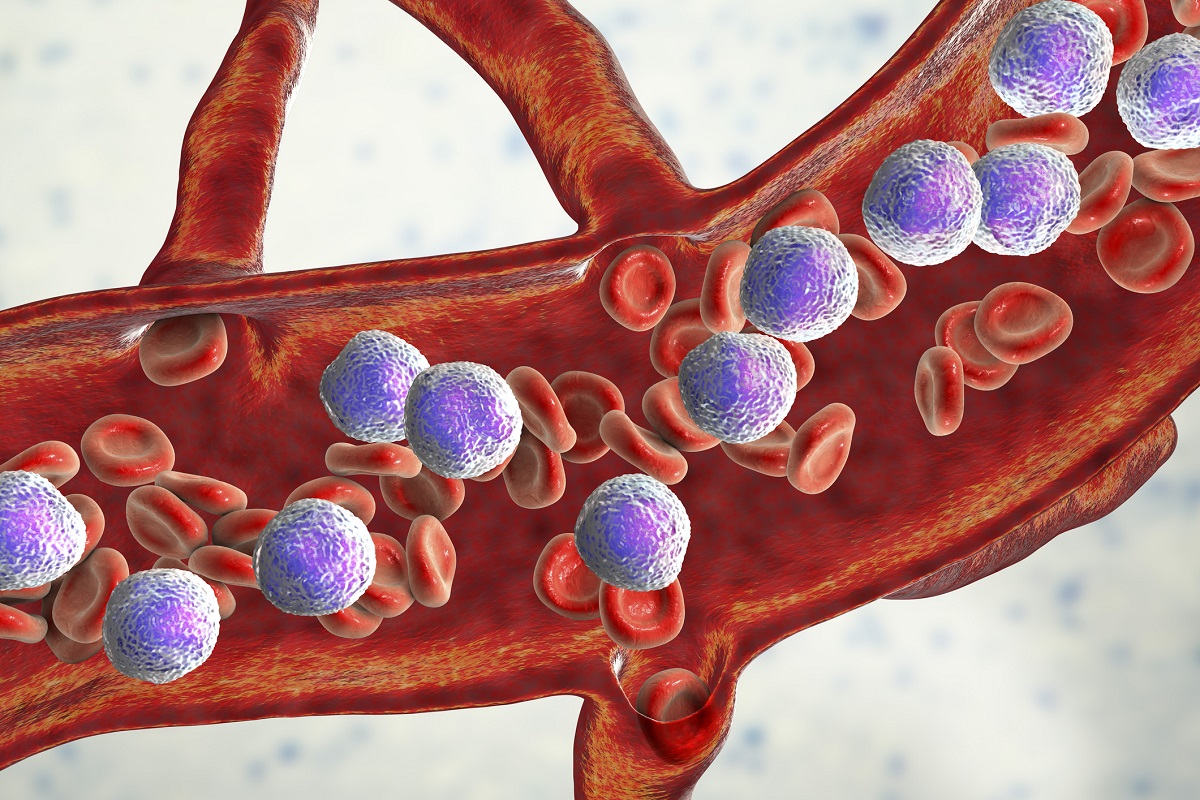KEY TAKEAWAYS
- The OPTIC phase II trial aimed to evaluate the benefit/risk profile of ponatinib treatment in heavily pretreated TKI-resistant CP-CML patients.
- The study analyzed PFS and OS outcomes for each response group.
- The result demonstrated that achieving BCR::ABL1IS ≤10% within 12 months using ponatinib in highly TKI-resistant CP-CML significantly improves long-term PFS.
In chronic phase chronic myeloid leukemia (CP-CML), resistance to tyrosine kinase inhibitors (TKIs) is often attributed to BCR::ABL1 mutations. Ponatinib, a potent BCR::ABL1 TKI, demonstrates efficacy against all native and single resistance–mutation variants, including T315I.
So, for a study, researchers aimed to evaluate the benefit/risk profile of ponatinib treatment in heavily pretreated TKI-resistant CP-CML patients using a novel response-based dosing strategy in phase 2 OPTIC trial.
The study conducted a post hoc analysis of participants achieving molecular responses at 3, 6, and 12 months. Included were CP-CML patients resistant to ≥2 prior TKIs or with a BCR::ABL1 T315I mutation, excluding those with missing/non-evaluable assessments or baseline BCR::ABL1IS ≤1%.
Patients were categorized based on ponatinib treatment response (BCR::ABL1IS ≤1%, >1%–10%, and >10%) at 3, 6, and 12 months, and outcomes for progression-free survival (PFS) and overall survival (OS) were analyzed within each response group.
About 277 treatment-resistant chronic-phase chronic myeloid leukemia (CP-CML) patients were included in the intention-to-treat (ITT) analysis. Of these, 270 patients were part of the landmark analysis, with a demographic profile of 50% male, a median age of 48 (range 18–81) years, and a median time from diagnosis to the first dose of 5.4 (range 0.7–29.5) years; 55% received ≥3 TKIs; 86% resistant to their most recent TKI. The percentages of patients achieving BCR-ABL1IS ≤1% were 20% at 3 months, 30% at 6 months, 38% at 12 months, and 47% at 36 months.
Patients with BCR-ABL1IS >1% -10 % within 12 months exhibited a superior 24-month PFS compared to those with BCR-ABL1IS >10% (89% vs. 75%). There was a discernible trend indicating an enhanced probability of 24-month overall survival (OS) in patients with responses of BCR-ABL1IS >1%–10% compared to >10%, regardless of the timeframe for achieving the response (response by 12 months: 100% vs. 95%).
The result demonstrated that achieving BCR::ABL1IS ≤10% within 12 months using ponatinib in highly TKI-resistant CP-CML significantly improves long-term PFS.
Source: https://clml-soho2023.elsevierdigitaledition.com/338/index.html
Clinical Trial: https://clinicaltrials.gov/study/NCT02467270
Apperley J, Cortes J, Jabbour E, Hochhaus A, Hughes T, Chuah C, de Lavallade H, Deininger M, Lipton JH, Lomaia E, Maness L, Mauro M, McCloskey J, Moiraghi B, Pavlovsky C, Rojas C, Rousselot P, Sacha T, Talpaz M, Turkina A, Sutton MU, Ren X, Vorog A, Rosti G. Molecular Response of ≤10% BCR-ABL1IS Is Predictive of Positive Outcomes in Patients With Treatment-Resistant Chronic-Phase Chronic Myeloid Leukemia (CP-CML) Treated With Ponatinib From the Phase 2 OPTIC Trial. SOHO 2023 CML-319. Scopus.



